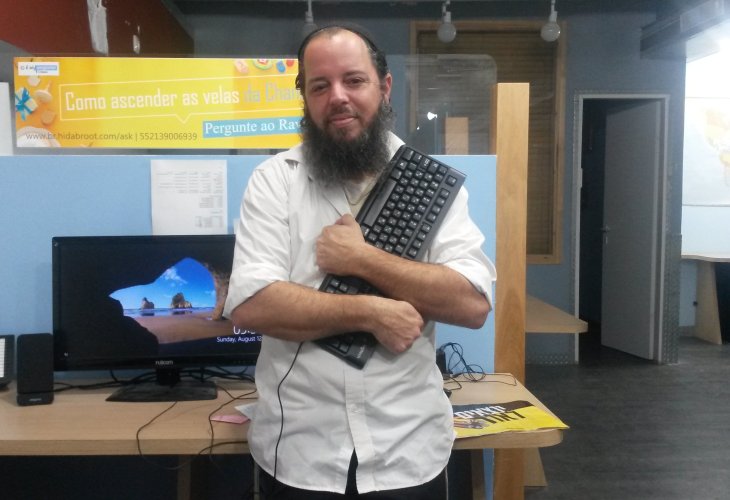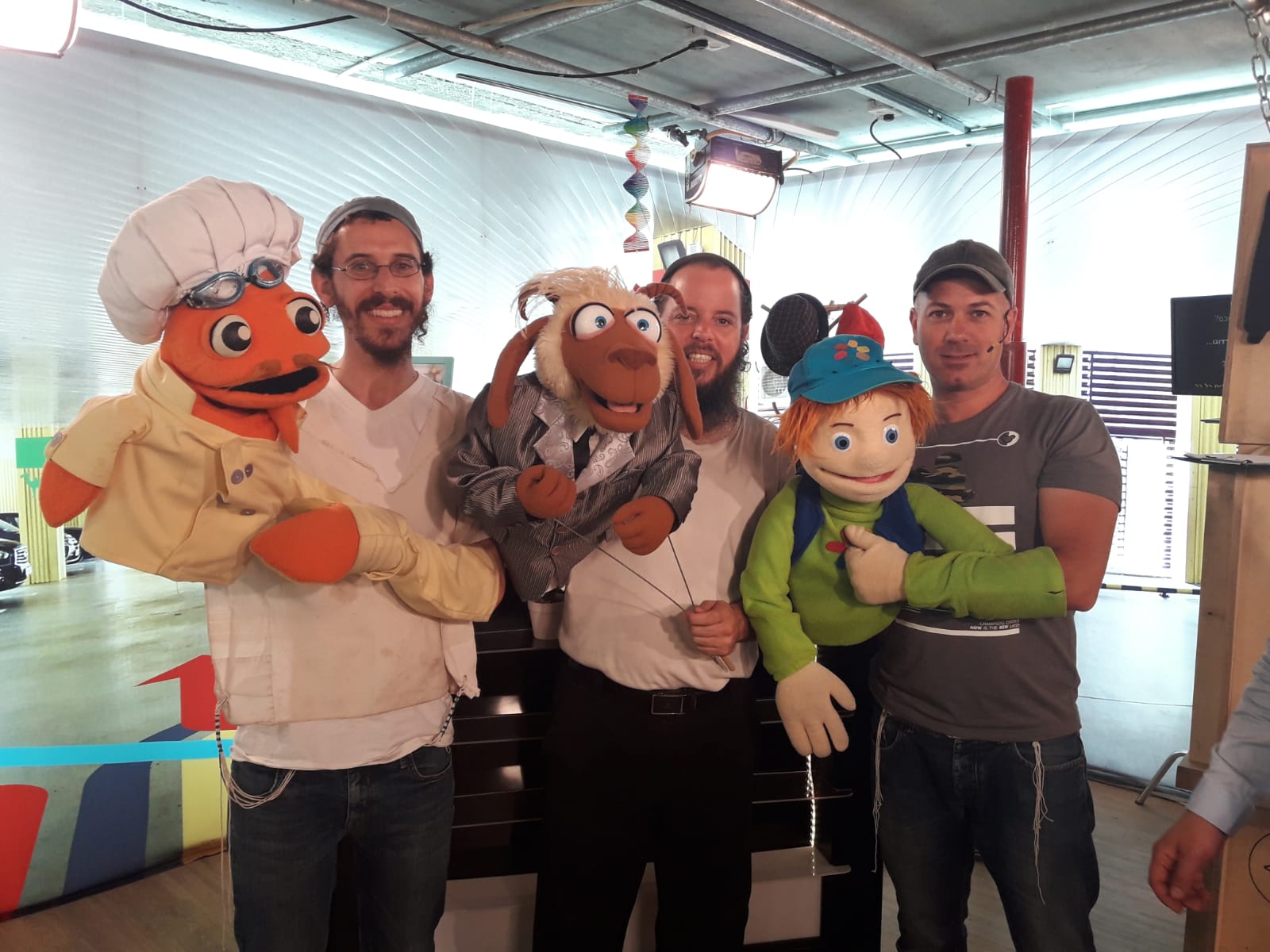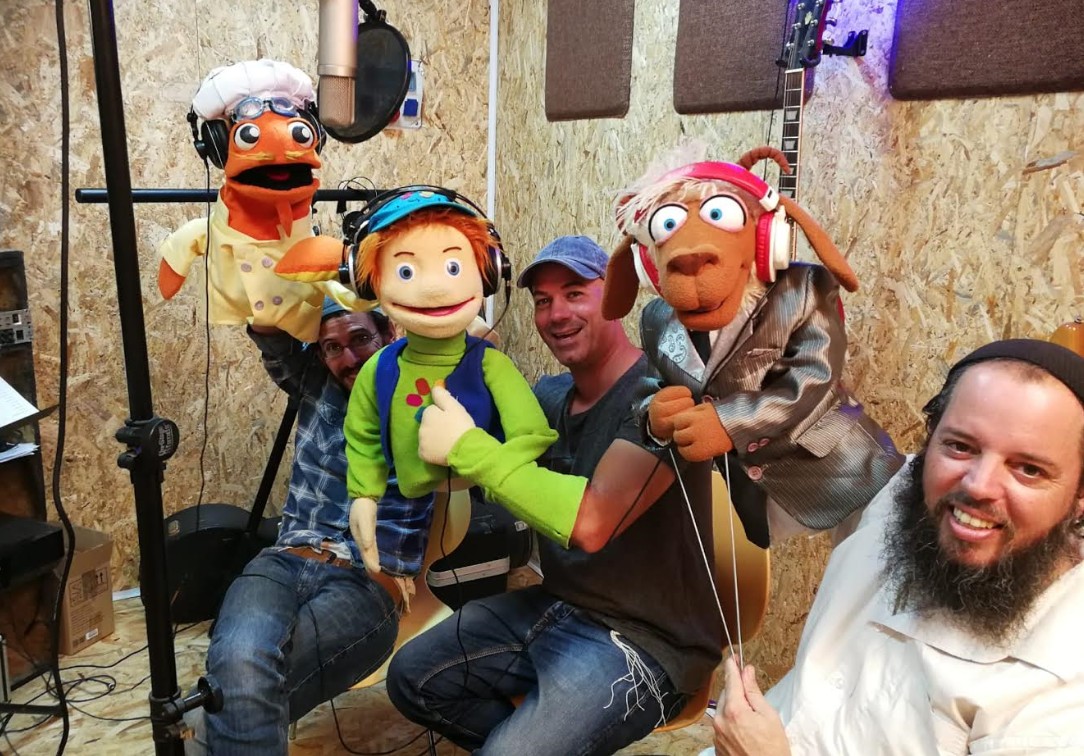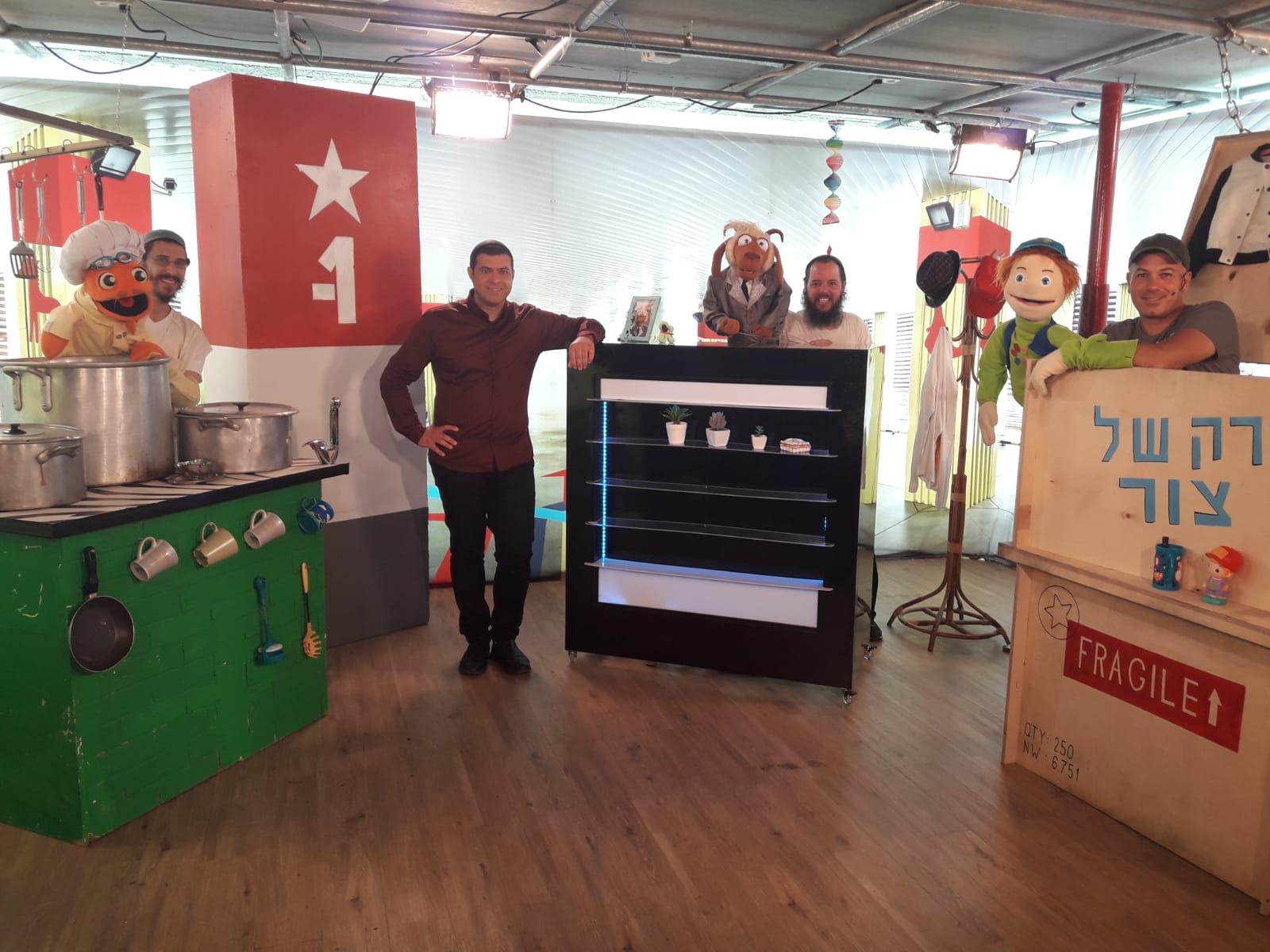Raviv Jak in an Open Interview: "I Could No Longer Work in Television"
More than a decade after entering the television world and working on almost every existing network, Raviv Jak realized he no longer belonged there. He left it all, became religious, and now writes and acts for the Hidabroot channel. Plus, what does he have to say about the new Kids' Block on Tzofiya?

"I've been in the television industry for twenty years," says Raviv Jak, also known to us as 'Sheshi Bar Sima', who broadcasts the popular program 'News On Time'. "For years I worked in television, in almost every possible channel. I was a researcher for Channel 2, in the control of Channel 10, a production assistant, a content producer, and what not? I infiltrated almost every channel, but I only really started writing professionally around seven years ago, when I was about 35."
Even during the days he worked behind the scenes, Raviv admits he always yearned to be in front of the camera. "By the way, I never formally studied writing and cinema," he laughs, "my degree is in something else entirely, but that doesn't really matter."
These experiences were about eight years ago, and since then, Raviv has not left the channel. "Though as a producer, I didn't last long—I wasn't a good producer, and I know it. I wasn't surprised when I was let go. But just before I left, something interesting happened – the director Orit Ben Attar was stuck on one episode of 'Sur Mishelanu', with a scene she couldn't write. She told me about it, and I simply offered to write it for her. I quickly wrote the scene, and Orit was so impressed that she immediately gave me an old laptop and declared that from that moment, I would regularly write."
This is how Raviv surprisingly discovered that he was quite strong in writing, and more importantly, that he loved writing much more than production and researching.
"One of the first ideas I proposed was to write a series called 'The Plugi Family'. I really wanted the series to air on Hidabroot, but when I suggested it, everyone unanimously recommended that it be staged as a theater play. Indeed, it was written as a play. It depicted the eldest son of a secular family who returns to religion. His family was so anxious about the idea that they even thought they might lose him, so they began to support him, to the point of irrationality. The family decided to change their name, their kitchen, marble included, thinking this would turn it kosher, and more. Following this play, I wrote another one called 'On Life and Death'. The protagonist is an atheist morgue worker who talks to the corpses and shares his atheistic views until one day the corpses start responding to him. I submitted the script to a large organization that offered significant budgets for religious plays and was chosen from among eighty-six screenwriters. However, the play did not come to fruition because the organization demanded that I change the script so that it wouldn’t definitively prove Hashem’s existence but rather question it. I told them there's no way I would do that. Hashem didn't give me the gift of writing for that purpose. Although this play hasn’t been staged yet, I haven’t abandoned the idea. I hope a suitable budget will come along, allowing me to present it on stage."
From a Kindergarten Play to a Series on Hidabroot
Thanks to these plays, Raviv found himself involved in other projects at Hidabroot. "This all happened after I decided one day to build a puppet," he shares, "The puppet I made wasn't very professional since it's not my field, but it was good enough for a performance at my daughter's kindergarten. I named the puppet 'Shmarya' and explained to the kids that it was called that because it 'watches' its tongue. The kindergarten show didn’t go as well as expected. There was a time when I didn't know what to do. I was quite desperate. I consulted the Biala Rebbe, and he told me I would get a television show. "I chuckled inside," Raviv says, "wanting to explain to the Rabbi that thousands of hours of stage time are needed to get a TV program. He just smiled and patted my shoulder." A week later, I was invited to Hidabroot to participate in an audition for a role, and I also brought the puppet. The audition was for the role of a tree. I didn’t pass the audition, as I didn’t really know how to portray a tree, but since I brought the puppet, I showed a few bits with it, and within minutes, I was signed up for ten programs in which I would be the writer, performer, and puppet handler."

And those programs indeed materialized and are known to viewers as 'Ap-Ap-Ap Shmarya'. "Writing these episodes was not easy at all," he notes, "imagine how complicated it is to write a children's show that introduces the concept of *lashon hara* to kids in a way that's not boring and accurately imparts the messages. It was so challenging that after these ten programs, I announced that I wouldn't continue with this topic. But naturally, I moved on to other things."
Raviv then moved on to create and write the program 'News On Time' with director Chaya Harkass. 'News On Time' is considered the most elaborate program on Hidabroot to date. "Each episode was filmed over three days on a green screen, requiring dozens of hours of editing per episode. We invested a lot in building the show and hired the most professional actors. It was endless work, but I think the results justified the effort. Even today, people recognize me in the street thanks to 'News On Time'."

You essentially both write and act, which is quite a unique combination. How do you feel about it?
"I feel great. Sometimes when you write something and hand it off to someone else to perform, you might be slightly disappointed with the result because they're not doing it exactly how you envisioned it. Here, I know exactly how I will perform and tailor the best fit for myself. However, I’m more pleased to hear compliments on my writing than on my acting. I also think that while I’m in a good place as a scriptwriter, there’s room for improvement as an actor..."
And now you're starting to act in the new Kids' Block by Hidabroot. Tell us about it.
"The Kids' Block on Tzofiya has many new programs. The block takes place where the puppets go to rest between programs together with different presenters, and they talk about everything there. The block features well-known actors like Oded Menashe, Nir Captain, and Yaniv Eliyahu. There are three puppets who are essentially the stars of the Hidabroot Channel. There’s Tzur, operated by Avishai Shitrit, Bardugo from the show 'Our Station' operated by Yael Chazan, and of course, Sheshi Bar Sima from 'News On Time' which I operate. Yossi Maimon and I write hundreds of skits each month, and over 150 have been written so far. The work is very hard and intense. We are doing our best to get the episodes out in Tzofiya as soon as possible." All of this complex symphony is gracefully led by Chaya Harkass, who has worked with Raviv for a long time, especially in the program 'News On Time'.

Where do you get so many ideas from?
"I draw on all the creativity I have and use experiences from my day-to-day life. For example, if I didn’t sleep one night because my little son was disruptive, I write a sketch about it, or if I went out with my children to the park and one lost a sandal that we, surprisingly, found thanks to a duck (!)—then the next day it already turned into a script. People say, 'What a bizarre story,' but I tell them, 'It happened yesterday.' In truth, my entire life is embedded within the Kids' Block on Hidabroot."
But it’s not just sketches being filmed in the block. These days, the block’s stars have completed recording a series of songs that will be released as clips on Tzofiya.
By the way, Raviv notes that filming the program is a very enjoyable experience. "We film in a static setting, meaning most of the sketches are primarily dialogues between actors. This leads to a lot of improvisation. One of the most challenging things about this improvisation, especially with Avishai Shitrit, who performs 'Sur Mishelanu', is that he improvises so hilariously that it’s crucial not to laugh, and in my case, not to bite my tongue seven times during a three-minute scene... But after the filming, we laugh together until we cry."

